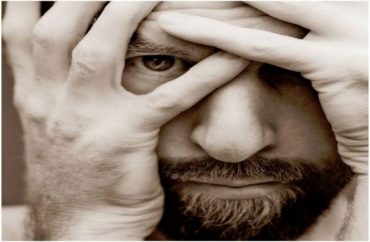
Faculty and staff survey: ‘VCU needs to hire more faculty that aren’t white males’
White professors — especially “senior white males” — are under fire at Virginia Commonwealth University as an impediment to diversity and inclusion.
An extensive campus climate survey of faculty and staff at the large, Richmond-based public institution has found that the majority of employees are upset that not enough white male professors attend campus diversity trainings, not enough professors infuse social justice into their curricula, and not enough professors of color, especially female ones, teach at the school.
Complaints culled from the survey include:
“Need to imbed social justice across academic departments.”
“Conversations about social justice are occurring, but they are just not happening in the classroom”
“There are not many minority women faculty”
“Some faculty and staff participate in the diversity and inclusion events; senior white males are not attending”
“In order to increase and improve perspectives, VCU needs to hire more faculty that aren’t white males.”
Last month, campus leaders at Virginia Commonwealth University held a forum to unveil the results of the faculty campus climate survey, which generally found most professors at the school — which teaches some 31,000 students annually — perceive the university to be dedicated to social justice initiatives, but that dedication needs to play out more inside the classroom, and needs to be reflected better by hiring more faculty of color.
The information collected, along with feedback from several prior forums, has been used by VCU’s Council for Inclusive Excellence and Equity to develop a five-year diversity action plan that will pervade nearly every aspect of school policy.
In response to the survey, campus leaders say they must “align, improve and visibly demonstrate actions for diversity and inclusion,” “push continuously towards demographic equity in all programs and services” and “integrate social justice and experiential learning into curriculum or coursework.”
As for the complaint that “senior white males are not attending” diversity trainings, this may refer to at least one of the school’s workshops such as “Building Inclusive Communities” which teaches scholars how to identify and discuss “historically marginalized and privileged group dynamics” and assess “personal experiences of privilege, inequity and oppression.”
The survey did not cite examples on why “senior white males” might want to skip such trainings. According to the draft of the new diversity action plan, however, the committee plans to design more cultural competency training which will be made available to all faculty, staff and students.
Overall most full and part-time faculty grieved that efforts to inject social justice directly into the university curriculum were “lagging” and demanded that such themes be “imbedded across all academic departments.”
Scholars further complained that there is not enough diversity among their colleagues, commenting that “in order to increase and improve perspectives, VCU needs to hire more faculty that aren’t white males.”
Some 2,674 faculty and staff responded to the 10-minute online poll. Of those surveyed, 60 percent reported being female and at least 26 percent reported not being white (10 percent declined to state).
Additional diversity recommendations include more grants for diversity and inclusion research and awards, and recognition for professors who do research in these areas, according to the draft of the proposed diversity action plan. This research would then be disseminated to faculty at professional development workshops each semester to encourage direct implementation into classroom discussions.
The results of the campus climate survey have culminated in school’s 36-page draft of their diversity action plan which would take them through the year 2022.
In an email to The College Fix, university spokesperson Michael Porter explained that the current draft has not yet been approved, but the goal is aiming for “a system of metrics which could consider issues such as student enrollment and graduation rates, demographic profile of our faculty members, policy reviews and updates and curriculum reviews.”
MORE: ‘No Campus for White Men’ — new book details the harsh reality in higher education today
Like The College Fix on Facebook / Follow us on Twitter




Please join the conversation about our stories on Facebook, Twitter, Instagram, Reddit, MeWe, Rumble, Gab, Minds and Gettr.